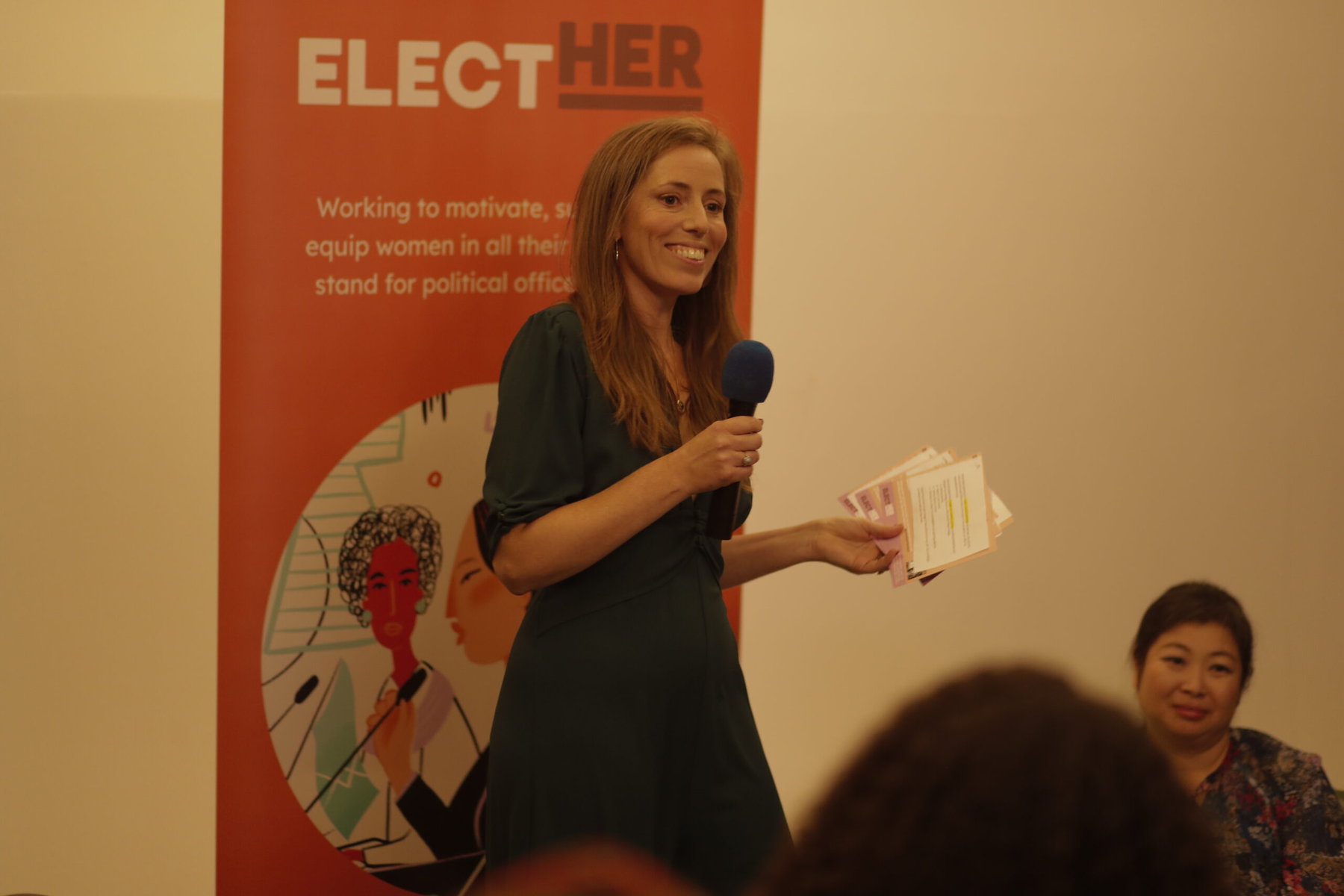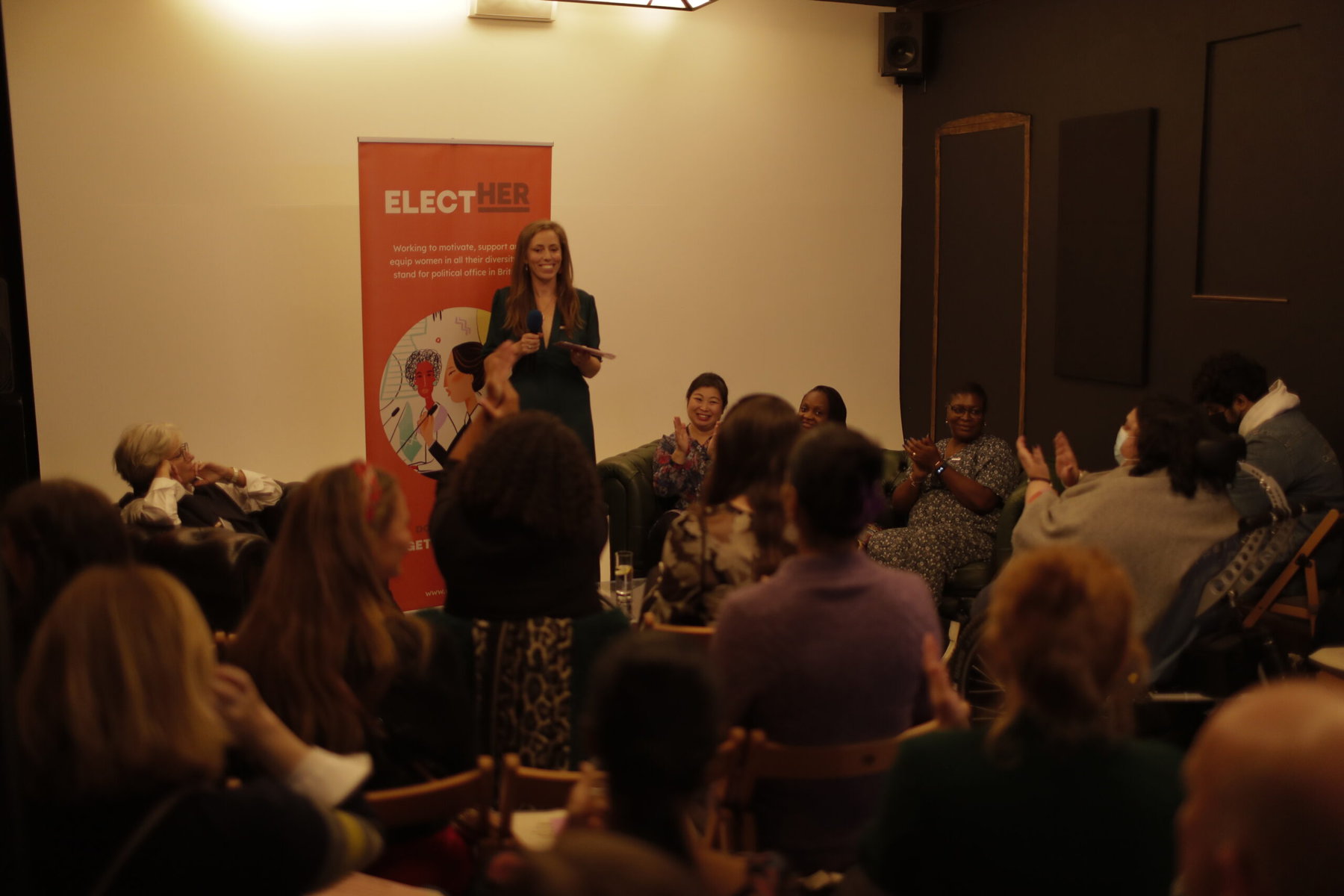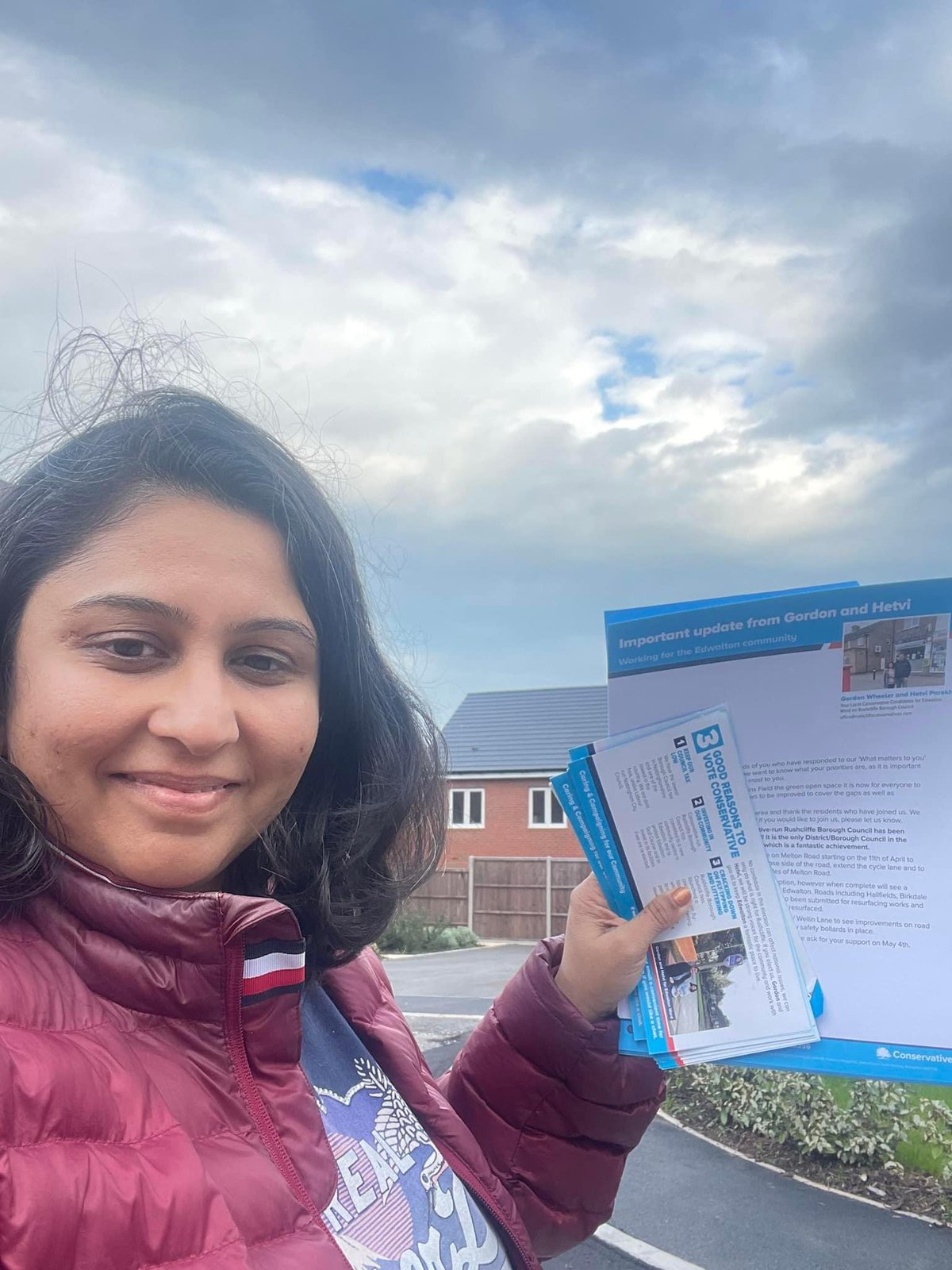Hetvi Parekh is the only woman from an ethnic minority — and one of just 14 women overall — of the 44 elected leaders of Rushcliffe Borough Council, a local government body near the UK city of Nottingham, representing nearly 200,000 residents.
Parekh, elected to the council in May 2023, and her female peers, who make up about 32 percent of the council, are reflective of a significant gender gap in the UK political system. Currently just 36 percent of the 19,212 elected councilors across the UK are women, while 35 percent of the national parliament, or 226 of the 650 members, are women.
Bridging that gap is exactly why Elect Her, an organization aiming to ensure at least 51 percent of UK government officials are women, was founded in 2016. It offers a program of events, workshops, online Q&As, guides and financial support to help women enter and navigate the political system.
Parekh is one of the 8,000 women who have become part of the Elect Her network, and one of 150 who have been elected to local councils as a result. She’s also one of 65 female candidates who have received a £500 grant via Elect Her to help with expenses like childcare, a lack of which could otherwise put participating in an election campaign out of reach for many women.
Parekh is a mom of seven-year-old twins, working a full-time job alongside a husband who often travels for work. That meant limited campaigning opportunities, as evenings and weekends are a prime time to knock on residents’ doors.
With her grant money, Parekh hired a sitter to watch her kids after she’d put them to bed, to then spend the evening campaigning.
“That grant was a godsend for me, because otherwise I would not have been able to get out in the evening, with two little kids and my husband working away. It would have become really difficult to juggle everything,” says Parekh.
On election day, Parekh emerged victorious, an achievement she credits to being able to maximize her campaigning time, thanks to the Elect Her grant.
Crushed by negative news?
Sign up for the Reasons to be Cheerful newsletter.
“[Without the extra childcare], the amount of ground I would have covered and the number of people I met wouldn’t have been the same,” she says.
“Because people met me, and they could put a face to my name, [that] is why many of them came out and voted for me. While campaigning one evening, someone actually said to me, ‘I don’t know you, but because you made the effort to come and talk to me, I will vote for you.’”
Thirteen of this year’s Elect Her grant recipients are about to stand in local elections, while 10 plan to be candidates in the UK’s next national election, currently scheduled for 2025. The 23 grantees are part of a wider group of 240 women running for election across the UK, with the organization’s support.

Anecdotally, Elect Her receives numerous comments from women that say they wouldn’t have had the confidence or resources to stand for an election without the organization’s support. In particular, grantees who are from underrepresented and underprivileged backgrounds have appreciated the financial support for the costs of running for election, to fund things beyond extra childcare, like transport to and from events, professional outfits for campaigning, and even living expenses that become harder to meet when trying to balance all priorities.
“We’ve listened to women about the costs associated with campaigning, and what has been getting in the way for them — and childcare is a massive one. It’s not currently considered a campaigning cost so political parties don’t subsidize it. Likewise, if someone has events that finish late at night, if they’ve got an extra pot of money, that means they can get a cab home and feel safe,” says Elect Her CEO Hannah Stevens.
“And increasingly with the cost of living crisis, that financial support is even more fundamental, when, for example, there’s a heating bill that someone can’t afford to pay because they’ve taken a couple of days off work so they can be on the campaign trail. And it’s the same for those who are so busy being candidates, that they don’t have enough time to cook and they can’t afford healthy meals.”

Purchasing new outfits to wear campaigning can make some women feel guilty, Stevens adds, but that too is a justifiable expense, considering studies show that 97 percent of women feel judged on how they look — and 61 percent have received negative comments about their appearance. Female politicians in particular have come under fire for dressing too provocatively or too plainly, and for repeating outfits. One Elect Her 2023 grant recipient bought a new pair of shoes that she wouldn’t have otherwise been able to afford, while another bought a new coat, saying she couldn’t remember the last time she had bought herself anything new.
“If someone’s coat’s got holes in it, and they’re going to have their photo taken for the election, they’re going to worry that people are going to judge them. There’s that element of feeling good about yourself,” she says.
Beyond this financial support, Stevens feels the biggest way Elect Her helps make the difference between a woman running or not running for election — then staying the full course rather than dropping out — is by walking them through a political system that many of them are not familiar with. It can feel overwhelming, and intimidating, says Stevens.
“We’re having these conversations with women about the reality of participation because it’s very hard to navigate inside the political parties. Then when they want to stand for election in 12 months time, what are the things that they need to do now, as it’s often unclear how to put yourself forward,” she says.

“We want to give women access to the information, so they can lead their campaigns and events and be as prepared as they need to be, without relying on the structures of political parties, which can sometimes be complicated.”
Parekh says she found Elect Her’s guidance on how to stand for an election, campaign coaching, and election resource packs useful, especially when it came to finding the voice to speak up for the issues she’s passionate about, like sustainable development and the environment.
“What I’ve learned over this past year is, if you don’t ask, you don’t get. If I’m not assertive about things, people are never going to notice me. It’s not about blowing your own trumpet, but it’s making sure that you are heard, and that people know the difference you have made in your role as a councilor,” says Parekh.
“That message needs to get across, not just to my residents in my ward, but also to my fellow councilors, because, for example, whenever you want to apply for any positions in the group, say you want to be the chair of a committee, you always have to prove yourself. I’ve always felt like I need to work extra hard to be myself.”
To further champion women in politics, Elect Her is growing its offerings to support women after they’ve been elected. Stevens and her team are also pushing for government bodies across the UK to publish the demographic data of their election candidates – which is currently not legally required — to gain a clearer understanding of where Elect Her needs to be more present geographically, and to build a bigger picture of how nuances like disability and race impact women in politics, too.
Parekh, who previously never felt politically motivated despite a strong track record of community service and volunteering, now feels she can legitimately call herself a politician.
“In this one year, I have learned so much — it’s been a huge change. I’ve learned about diplomacy and tact, and about making sure that you’re not making promises you can’t fulfill, by being very clear about your role, and about the framework you’re working in,” says Parekh. “I know how the system works now, so I may run for election again next time.”
The post The Movement to Elect More Women in the UK appeared first on Reasons to be Cheerful.




